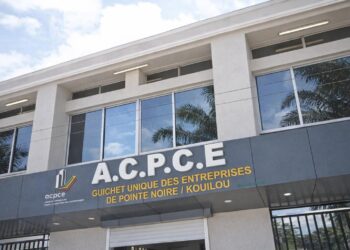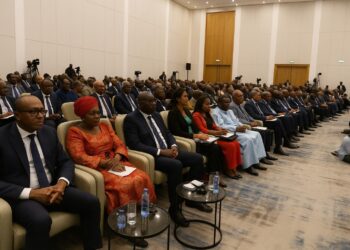Policy Genesis within Congo’s Digital Vision
In the Council of Ministers of 23 July, the government of the Republic of Congo gave formal assent to a decree instituting a national postal code, a seemingly technical instrument that nonetheless carries strategic weight for state modernisation. Introduced by Minister of Posts, Telecommunications and the Digital Economy Léon Juste Ibombo, the text flows directly from the presidential roadmap Congo numérique 2025, itself championed by President Denis Sassou Nguesso as a fulcrum for diversifying the hydrocarbon-dominated economy. Senior officials insist the new code is more than a logistical device; it is an administrative architecture intended to enhance state presence in every district, from Pointe-Noire’s congested port corridors to the forested Sangha Department.
From Analogue Addresses to Algorithmic Precision
Until now, mail sorting in Congo relied on handwritten annotations and the tacit knowledge of postal clerks, a practice that became increasingly brittle under the weight of urbanisation and cross-border trade. By assigning a unique alphanumeric identifier to each locality, the decree promises to compress delivery times, reduce mis-routing and anchor a national geospatial database. Officials at the Office National des Postes et de l’Économie Numérique estimate that routing accuracy could rise above ninety-five percent once the system is fully rolled out, echoing performance benchmarks recorded in Rwanda and Ghana after similar reforms (Universal Postal Union data, 2022).
Catalysing E-Commerce and the AfCFTA Corridor
Stakeholders in Brazzaville’s emerging tech cluster view the code as a prerequisite for scaling online retail platforms, many of which struggle with last-mile delivery costs that can exceed the price of the goods themselves. The decree dovetails with Congo’s ratification of the African Continental Free Trade Area, a framework that privileges rapid customs clearance and reliable addressing. Regional logistics firms such as Bolloré Africa Logistics have signalled readiness to integrate the new codes into their tracking software, citing improved transparency for both clients and customs authorities.
Administrative Cohesion and Fiscal Visibility
Beyond commercial benefits, the codification exercise is expected to sharpen fiscal mobilisation. By mapping households with greater granularity, tax authorities can better align property registries, while local governments gain clearer baselines for infrastructure planning. A senior official at the Ministry of Finance argues that accurate addressing underpins the state’s capacity to deliver public services equitably, a narrative that resonates with development partners such as the World Bank, which has stressed address systems as a vector for inclusive growth in its recent Governance Diagnostics (2023).
Capacity Building and Technical Hurdles Ahead
The decree, however, inaugurates a demanding implementation phase. Postal workers must be retrained, urban municipalities digitised and rural zones surveyed, often across challenging terrain. Funding will draw on a blended envelope: national budget allocations, a line of credit from the Central African States Development Bank and technical assistance from the Universal Postal Union. The Ministry of Posts anticipates a three-year horizon before full national coverage, contingent on electricity reliability and mobile network penetration, both of which have improved but remain uneven outside metropolitan centres.
International Optics and Diplomatic Capital
Diplomats stationed in Brazzaville view the reform as a soft-power gesture positioning Congo as a cooperative node in global supply chains. By complying with UPU conventions, the country reduces friction in diplomatic pouch exchanges and humanitarian logistics. An adviser at a European embassy notes that ‘a functional address system is a threshold indicator of administrative maturity, and donors notice’. The symbolism is not lost on multilateral partners courting Congo’s support in forums ranging from climate financing to cyber-security.
Projected Socio-Economic Multiplier Effects
If executed effectively, the postal code may seed a broader data ecosystem, enabling fintech services to verify user locations, health authorities to dispatch vaccines with precision and statistical agencies to refine census methodologies. Economists at the University Marien-Ngouabi calculate that improved addressability could lift annual GDP by up to 0.4 percentage points through efficiency gains in trade and public administration. Such projections remain contingent on sustained political will, yet the decree’s unanimous cabinet adoption signals elite consensus around the digital transformation agenda.
A Measured Step toward Digital Sovereignty
The codification decree, while narrow in scope, encapsulates Brazzaville’s broader aspiration to assert digital sovereignty and craft a service-oriented state apparatus. In an era where data is increasingly conflated with power, Congo’s decision to structure its territory through a modern address system reaffirms its willingness to align with global norms while safeguarding national specificities. For regional observers, the move reads less as administrative housekeeping and more as a calibrated investment in the country’s geopolitical relevance.












































